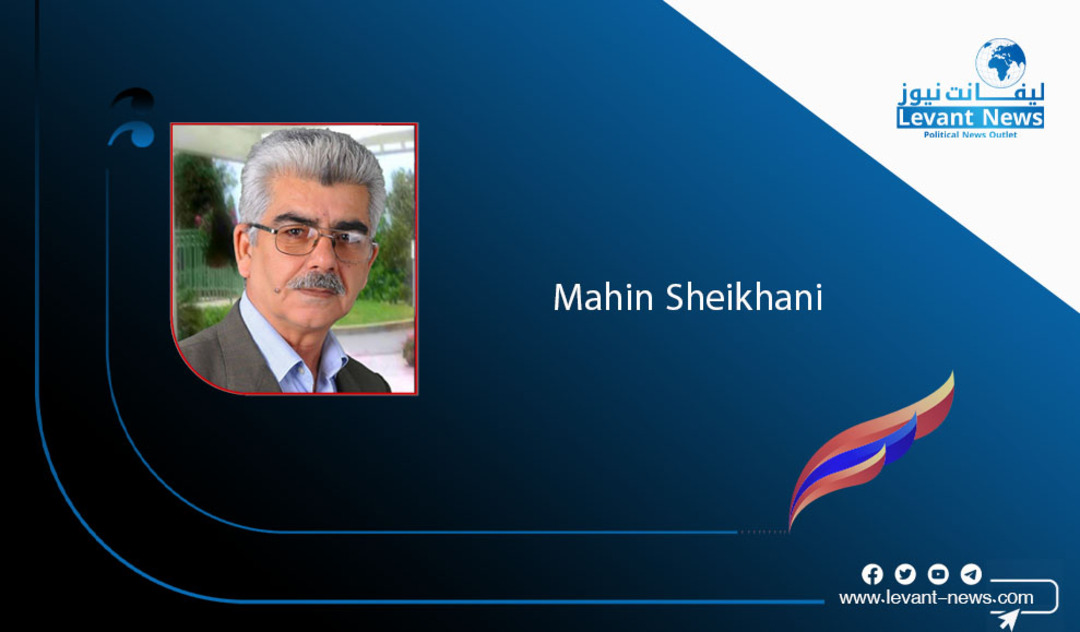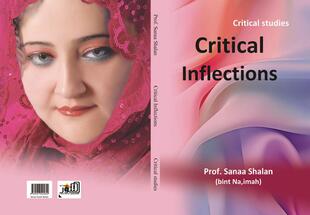-
Kurdish Presence in Kurdistan and the Relationship of Indigenous Arab Tribes with the Kurdish Component

The Kurdish issue represents one of the oldest and deepest questions of the peoples in the Middle East, where the Kurdish struggle is centered on the right to self-determination and the preservation of national and cultural identity. In this research, we highlight the historical relationship between the Kurds and the indigenous Arab tribes, discussing attempts at denial and exclusion, especially in the context of the recent Syrian war, while emphasizing the central role of Kurdish culture and literature in resisting attempts at erasure and persecution.
1. Historical Introduction
Since ancient times, Kurdistan has been the homeland of the Kurdish people, with the roots of the Kurds traced back to the peoples of the Zagros and Taurus mountains, such as the Medes and Carduchians. Over the centuries, the Kurds have maintained their geographic and demographic presence in this region, forming a distinctive culture and a national identity rooted in the land.
2. Indigenous Arab Tribes and Their Awareness of Kurdish History
Indigenous Arab tribes, especially those that migrated to Kurdistan for grazing or trade, have always been well aware of the history of the land and its owners. The tribal chiefs and prominent figures have consistently recognized the deep-rooted Kurdish presence, considering the Kurds to be an original people with an ancient history. This mutual knowledge has established respectful relationships between the two parties, founded on recognition of rights and land.
3. The Phenomenon of Denying Kurdish Existence: Slaves, Rabble, and Nationalists
Conversely, marginalized groups—comprising slaves, societal outcasts, and extremist nationalists—emerged to deny the existence of the Kurdish people or to question their historical rights. Driven by ignorance and fanaticism, they employed exclusionary and racist rhetoric, denying thousands of years of Kurdish presence in Kurdistan, especially in Syria, where Kurdish existence extends back to pre-modern state times. This phenomenon of denial did not stem from intellectual power or historical argument but rather from a sense of inferiority and a desire to expand at the expense of a defenseless people, except for their will and culture.
4. The Kurds and Fourteen Years of War in Syria
Over more than fourteen years of the Syrian war, the Kurds in Syria have faced multiple forms of exclusion, marginalization, and injustice. Despite their active participation in protecting their regions and combating terrorism, the chauvinistic mentality of some Arabs has clung to its old exclusionary concepts. The mindset denying the Kurds their rights has not only persisted but has deepened among some as racist and nationalist rhetoric has intensified. This confirms that the crisis is not merely a struggle for power but an awareness and cultural crisis urgently needing radical change towards genuine recognition of pluralism and the right to exist.
5. The Patience of the Kurds and Their Commitment to Coexistence Despite Rejection and Threats
Despite waves of denial and hostility, the Kurdish people have remained committed to the values of coexistence and humanity. The Kurds have responded to attempts at displacement and threats with increased openness, believing that the land accommodates everyone if rights are respected. Although extremist nationalist factions have declared open war on Kurdish existence, the Kurds insist on protecting the shared social fabric, considering that dignity is indivisible and that true pluralism cannot be built on denying the other.
6. Kurdish Culture: The Shield of Identity and the Weapon of Struggle
Kurdish culture has not merely been a popular heritage but a spiritual weapon that has preserved the identity of the nation. Through literature, poetry, and music, the Kurds have expressed their suffering and dreams.
Role of Kurdish Writers and Poets
- Melayê Cizîrî (1567 – 1631) is considered one of the foremost classical Kurdish poets and a towering figure in Kurdish literature.
- Ahmad Khani, born in 1650 in Hakkari and died in 1707 in Dogubayazit, was a writer, poet, and philosopher.
- Cegerxwîn (1903–1984): A major Kurdish nationalist poet, symbolizing the cultural revolution, urging freedom and justice in his poems.
- Sherko Bekas (1940–2013): A contemporary Kurdish poet known for his national romanticism and defense of freedom issues.
- Pir Amîd (1867–1950): A poet, journalist, and thinker who defended Kurdish culture against Turkification and Arabization campaigns.
Hecar (1921–1993): A nationalist and revolutionary poet whose poetry fueled Kurdish struggle in the twentieth century.
These writers and others embodied a vibrant cultural resistance against attempts at erasure and alienation.
7. Conclusion: Lessons from History and a Message to the Future
Understanding the Kurdish reality requires a return to history, far from artificial grudges and hatreds.
The authentic Arab tribes continue to bear witness to the brotherly relationship with the Kurds, while the deviant voices that deny this truth expose themselves before they offend others.
The Kurds will remain loyal to their land, clinging to their right to exist, believing that freedom and dignity are not granted, but rather are won with steadfastness and rationality.
As the great Kurdish poet Jekerkhwin said:
"We die standing on our land, and we do not live bent over in the shadows of others."
The path to the future is not through denial and exclusion, but through recognition and respect. Peoples who unite and respect each other build strong, free, and prosperous homelands.
Levant: Mahin Shikhani
You May Also Like
Popular Posts
Caricature
BENEFIT Sponsors BuildHer...
- April 23, 2025
BENEFIT, the Kingdom’s innovator and leading company in Fintech and electronic financial transactions service, has sponsored the BuildHer CityHack 2025 Hackathon, a two-day event spearheaded by the College of Engineering and Technology at the Royal University for Women (RUW).
Aimed at secondary school students, the event brought together a distinguished group of academic professionals and technology experts to mentor and inspire young participants.
More than 100 high school students from across the Kingdom of Bahrain took part in the hackathon, which featured an intensive programme of training workshops and hands-on sessions. These activities were tailored to enhance participants’ critical thinking, collaborative problem-solving, and team-building capabilities, while also encouraging the development of practical and sustainable solutions to contemporary challenges using modern technological tools.
BENEFIT’s Chief Executive Mr. Abdulwahed AlJanahi, commented: “Our support for this educational hackathon reflects our long-term strategic vision to nurture the talents of emerging national youth and empower the next generation of accomplished female leaders in technology. By fostering creativity and innovation, we aim to contribute meaningfully to Bahrain’s comprehensive development goals and align with the aspirations outlined in the Kingdom’s Vision 2030—an ambition in which BENEFIT plays a central role.”
Professor Riyadh Yousif Hamzah, President of the Royal University for Women, commented: “This initiative reflects our commitment to advancing women in STEM fields. We're cultivating a generation of creative, solution-driven female leaders who will drive national development. Our partnership with BENEFIT exemplifies the powerful synergy between academia and private sector in supporting educational innovation.”
Hanan Abdulla Hasan, Senior Manager, PR & Communication at BENEFIT, said: “We are honoured to collaborate with RUW in supporting this remarkable technology-focused event. It highlights our commitment to social responsibility, and our ongoing efforts to enhance the digital and innovation capabilities of young Bahraini women and foster their ability to harness technological tools in the service of a smarter, more sustainable future.”
For his part, Dr. Humam ElAgha, Acting Dean of the College of Engineering and Technology at the University, said: “BuildHer CityHack 2025 embodies our hands-on approach to education. By tackling real-world problems through creative thinking and sustainable solutions, we're preparing women to thrive in the knowledge economy – a cornerstone of the University's vision.”
opinion
Report
ads
Newsletter
Subscribe to our mailing list to get the new updates!




















